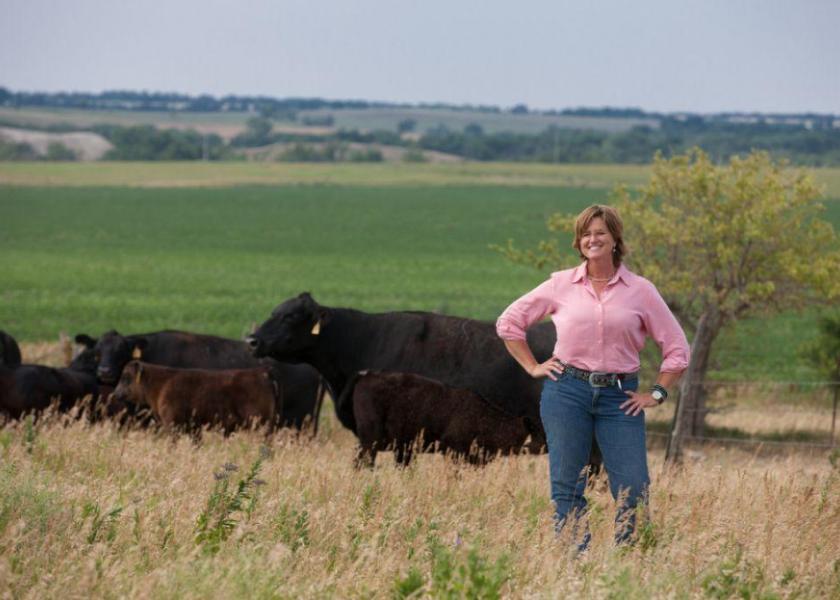U.S. Beef Shows Years of Progress, Says Kansas Rancher

How did beef become the bad guy in environmental discussions?
“It’s an easy argument for the anti-agriculture community,” says Debbie Lyons-Blythe, a Kansas rancher, who visited with AgriTalk host Chip Flory recently. The industry has faced misleading scientific reports about the environmental impact of beef production, and that misinformation is hard to move past.
That’s all the more reason it’s important to speak up when presented opportunities to do so. Blythe recently testified at a U.S. Senate Agriculture Committee hearing on climate change, representing the National Cattlemen’s Beef Association.
``````
“I think when you talk about climate change, and you talk about sustainability, a lot of farmers and ranchers kind of ball up and get a little bit defensive when you say those words,” she said. “But frankly, it's all about doing a better job taking care of the environment, and the animals and the people. And then it has to also have something to do with being a better business and making money. Right? Because if I'm not making money, I don't have the money to put into conservation practices.”
Blythe said she included information about land and wildlife conservation practices, and ways cattlemen and women are improving their farms and ranches.
“I talked about a lot of the technologies that we are using in the cow herd to make ourselves more efficient. Today, we produce the same amount of beef that we were in the ‘70s with 30% less cattle,” she added.
Improvement in genetics and selection tools—from estimated breeding values to DNA testing—have spurred that improvement in production.
“We can produce beef faster, with fewer resources,” she said. “And we've been doing that without calling it sustainability for a lot of years.”
Profit is part of the equation, Flory added. “If there's no profits, there's zero sustainability in the beef business.”
Click the player above to hear more about Debbie Lyons-Blythe and how they have set up their farm transition plan to include the next generation.
Related Articles:
AgriTalk: Cattle’s Testimony to Congress on Industry Efficiency
Lyons-Blythe Testifies On Beef Cattle Emissions
USRSB: The Sustainable Initiative to Watch in 2019







